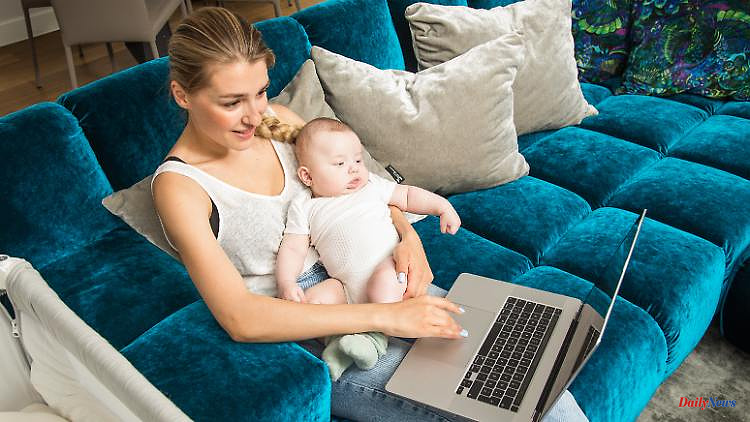With the votes of the traffic light coalition and the Union, the Bundestag decides on tax breaks for citizens who come from the corona pandemic. This applies, for example, to the submission of tax returns, depreciation for companies, the tax exemption of corona bonuses and the flat rate for working from home.
The corona pandemic is increasingly taking a back seat in everyday political life, but its consequences can still be felt, in some cases painfully. The Bundestag has therefore decided on tax breaks to help citizens and companies through the crisis. Among other things, this gives companies incentives for more investments, which threaten to fail in view of the Ukraine war.
The traffic light coalition improved the draft of the federal government again, extended deadlines for tax returns and increased the amount up to which the so-called care bonus remains tax-free. In the Bundestag, not only the coalition, but also the opposition Union agreed. Many sensible regulations introduced by the previous black-red government would be extended, said Union MP Fritz Güntzler. But more should have happened, for example in the case of loss offsetting for companies.
The following measures were decided:
Home office flat rate also for 2022
Employees can also claim a home office flat rate in their tax return for this year. You can calculate five euros per day working from home, but a maximum of 600 euros per year. This is independent of whether you have an extra study or work from the living room or kitchen. However, the sum achieved in this way is one of the income-related expenses, for which all taxpayers are charged a flat rate of 1000 euros anyway. Only those who spend more than 1000 euros benefit from the special rule. Coalition MPs indicated that the regulation might be extended in a further step and applied permanently.
degressive depreciation
The degressive depreciation for so-called movable assets such as machines or vehicle fleets is extended by one year. Companies can write off larger sums than normal in the first few years after a purchase. In subsequent years, the depreciation amounts are then lower. This should provide an incentive to invest, even though the economic situation is uncertain at the moment.
Settlement of Losses
Companies can offset current losses against profits from the previous two years to a greater extent than before. This reduces prepayments, for example. In addition, overpaid taxes are refunded sooner. The extended loss statement will be extended until the end of 2023. For 2022 and 2023, the maximum amount will also be raised to 10 million euros.
Longer deadlines for tax returns
Taxpayers have more time to file their tax returns. Those who make their declaration for 2021 alone now have until the end of October 2022. If you have a tax advisor, you don't have to hand it in until the end of August 2023. There are also longer deadlines in the coming years. The tax consultants had recently reported a high volume of work because they also apply for economic aid for companies and take care of short-time work benefits.
Corona bonuses up to 4500 euros tax-free
Many employees in nursing, in hospitals and practices receive corona bonuses from their employers. The Bundestag has now regulated that these payments remain tax-free up to an amount of 4500 euros. As much of the money as possible should actually reach the employees. This applies to special payments, among other things, for employees in hospitals, in intensive care, for outpatient nurses and employees in nursing homes, but also in certain rehabilitation facilities, medical and dental practices and in the emergency services.
6












